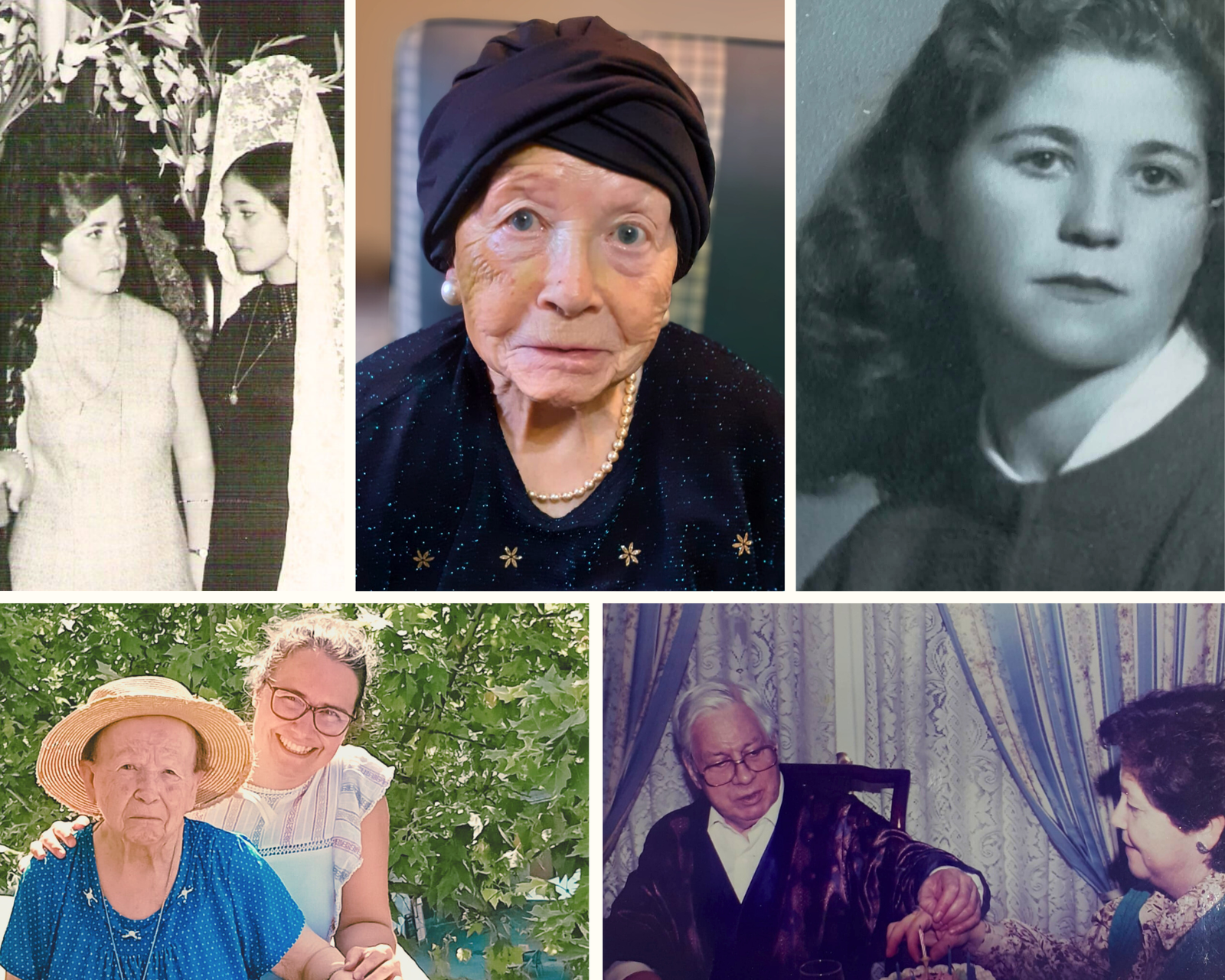
Gospel according to Saint Luke 12:49-53:
Jesus said to his disciples: “I have come to set the earth on fire, and how I wish it were already blazing! There is a baptism with which I must be baptized, and how great is my anguish until it is accomplished! Do you think that I have come to establish peace on the earth? No, I tell you, but rather division. From now on a household of five will be divided, three against two and two against three; a father will be divided against his son and a son against his father, a mother against her daughter and a daughter against her mother, a mother-in-law against her daughter-in-law and a daughter-in-law against her mother-in-law.”
A fire that builds
Luis CASASUS President of the Idente Missionaries
Rome, August 17, 2025 | XX Sunday in Ordinary Time
Jer 38: 4-6.8-10; Heb 12: 1-4; Lk 12: 49-53
If building peace and promoting unity are two of the most difficult tasks in any environment, be it family, work, the community of nations, or cultures, why does Christ today use the images of fire and division? He does not say that they are a sad reality of the world, but that He has come to bring them.
We can understand this better if we remember that fire is an image of purification, of how substantial changes take place in our lives, particularly in our immediate relationship with God, with our neighbor, and with what we call “the world.”
Here is a brief story to help us understand better:
In a small village that preserved many ancient traditions, there lived a young girl named Sara, known for her kindness and love for others. From a young age, she had worked alongside her grandfather, a potter who shaped vessels with his gnarled, wise hands. She watched intently as the skilled craftsman worked.
One day, Sara wanted to make her first pot by herself. She took the clay, molded it carefully, and left it to dry in the sun. She was happy with her creation and thought it was ready. It is beautiful just the way it is, she said, contemplating the fragile but elegant shape she had made.
Her grandfather, seeing it, said with a kind smile: It has not been through the fire yet.
Sara frowned. Fire? Why would you burn it? It could break! It is pretty just the way it is.
He took it to the furnace. Listen, Sara: Without fire, this is not a pot. It is just dry clay. Fire does not destroy it, it strengthens it. It makes it useful. It purifies it.
Sara, fearfully, placed the pot in the furnace. The heat was intense. For hours, the fire roared, and she feared that her creation would crack.
But when it came out, the pot shone with a new strength and beauty. Its colors were deeper, its body stronger. It was no longer dry clay: now it could hold water, hold flowers, withstand time, fulfill its purpose.
Her grandfather looked at her and said: That is how we are before God. He wants to ignite a transformation in us, so that we may go from clay to living vessels.
Sara understood. Behind the pain, there is indeed grace. And from that day on, she no longer feared the fire.
Fire is a symbol of purification because it burns away all impurities and everything that cannot last. This explains why purgatory and hell are symbolized by the fire of purification or condemnation.
Let us not lose sight of the fact that purification is not a punishment, but the way to unite ourselves with the Divine Persons and -in an authentic way- with our neighbor. That is why Jesus strove to show the necessity of repentance and conversion in order to enter his kingdom now. In fact, he began his mission by saying: The time is fulfilled, and the kingdom of God is at hand; repent and believe in the gospel (Mk 1:15). This is so true and expressive that it goes beyond being a metaphor, for sometimes in the Bible fire is compared to the very presence of God, as when the Holy Spirit comes, as happened at Pentecost, or when St. Paul begs the Thessalonians not to “quench the Spirit” (1 Thess 5:19).
What is the practical lesson for us today?
֍ Perhaps the most direct and obvious is that Jesus’ message is so radical and transformative that it inevitably causes conflict. It does not bring a superficial “peace” that consists of maintaining the status quo or avoiding conflict at all costs. On the contrary, it demands a fundamental decision that can separate people from their friends or family, not to mention other people who may feel accused or experience envy when comparing their stubbornness and rebellion with the honest struggle of a true ascetic who wants to change. This may be one form of the painful division that Jesus describes.
֍ But there is something more subtle and decisive, which Fernando Rielo calls segregation. This is an aspect of what is traditionally called the night of the spirit. It is not the obvious separation of good and evil. It is a true division between soul and spirit, each of which “wants to live its own life.”
Obviously, the soul aspires to what the senses, instincts, and the world demand—goals that are not necessarily evil, but the ascetic understands that they do NOT come from God and therefore do not satisfy him; they cannot fulfill him as they did at other times in his life. At the same time (hence the term “night”), the spirit is unclear about what the divine will is for me at this moment, so it is not easy to embrace what belongs to the kingdom of heaven.
This experience is not uncommon or momentary; it can be very prolonged, as in such well-known cases as St. Pio of Pietrelcina (1887-1968) or St. Teresa of Calcutta (1910-1997). In this sense, the Gospel continually provokes an interior division, because it calls for constant conversion.
We can give an example, more or less close to what may happen to you and me.
This is the case of a young nun who, since childhood, had felt a deep connection with children: she taught catechism, organized games, and had a special ability to calm them down with just a smile. Her vocation seemed clear: to educate, care for, and accompany the little ones. In fact, she gave up marriage so she could reach many children she saw in need of companionship and help.
However, several misfortunes coincided in her community: the death of a sister who was a doctor and two nurses in a catastrophic traffic accident, which forced her superiors to assign her to the hospital they ran. She was afraid of and averse to blood, which sometimes caused her to faint. In addition, she was assigned to the intensive care unit, where she had to assist adults in critical condition. She felt out of place. She could not understand why her dream of serving the youngest seemed to be fading away, and she felt truly despised by God. The corridors were silent, the faces marked by pain, and there was no children’s laughter to comfort her.
However, she decided to give herself completely and spoke to the sick as if they were lost children in search of comfort. She never felt that she could adequately fulfill her mission; she never felt confident about how to treat the sick, as she had no training in the health field; until the end of her life, she suffered because she could not imagine how to comfort the families of the dying. To make matters worse, she was often in charge of instructing and encouraging the young women who were doing a several-week internship at the hospital.
This situation led her to have a poor opinion of herself, to think that her religious life was little more than a failure, and to doubt her generosity. At the same time, her longing for God grew ever more intense, as did her sensitivity not to transmit that pain to those around her.
At the end of her life, she revealed all this to her spiritual director, who recognized in her a model of dedication and self-sacrifice for all the veteran and novice religious, based on her way of carrying the cross of purification, which allowed her to live in exquisite obedience to the divine will.
St. Paul clearly expressed this separation when he wrote to the Galatians: The desires of the flesh are against the Spirit, and the desires of the Spirit are against the flesh, for these are opposed to each other, so that you cannot do what you wish (Gal 5:17).
But also, the author of the Letter to the Hebrews confirms that whatever we do in the name of Christ will bear apostolic fruit with absolute certainty, before our eyes and after our departure from this world: There is nothing hidden that will not be revealed, nor secret that will not come to light.
—ooOoo—
In the First Reading, we hear about another dimension of this struggle between God’s will and man’s will. In this case, it is the surprising and sad confession of the king of Judah, when the country was plunged into corruption, disorder, and injustice because it was ruled by evil men. When his chief advisers wanted to get rid of the prophet Jeremiah, King Zedekiah said to them: He is in your hands, as you well know, for the king has no power over you.
There is no need to dwell on the evils of today’s world. Suffice it to mention how, in the name of freedom, the death of unborn children, euthanasia, and the use of substances whose lethal effects are well known are promoted. A true culture of death. Little seems to have changed in our personal and collective history.
Purifying fire is not always welcome, for we all resist change. Intelligent people and the most foolish, the healthy and the sick, the young and the mature. This is well known, but today’s Second Reading warns us that this fire not only seeks to separate us from sin, but also to renounce everything that hinders us, which may be our way of thinking, the way we live generosity, fear, or the natural desire for comfort.
We cannot ignore how the devil uses those who pride themselves on their intelligence, deceiving them into doing evil, disguising evil as good, falsehood as truth, and the long-term consequences of what they consider immediate benefits. But the Gospel also has an answer to our amazement at the power of evil: Do not be afraid of those who kill the body but cannot kill the soul; rather, be afraid of the one who can destroy both soul and body in hell (Mt 10:26-28).
May today’s Gospel remain engraved in the depths of our being and may we accept the value of purification, for it comes from the Holy Spirit himself. Therefore, let us not silence the cry of our hearts, as St. Augustine said and Pope Leo reminded us on the Vigil of the Jubilee of Youth.
This purification, with the pain it entails, is the way to be able to give our lives completely and thus share that complete happiness that Jesus showed us by his life.
_______________________________
In the Sacred Hearts of Jesus, Mary and Joseph,
Luis CASASUS
President












